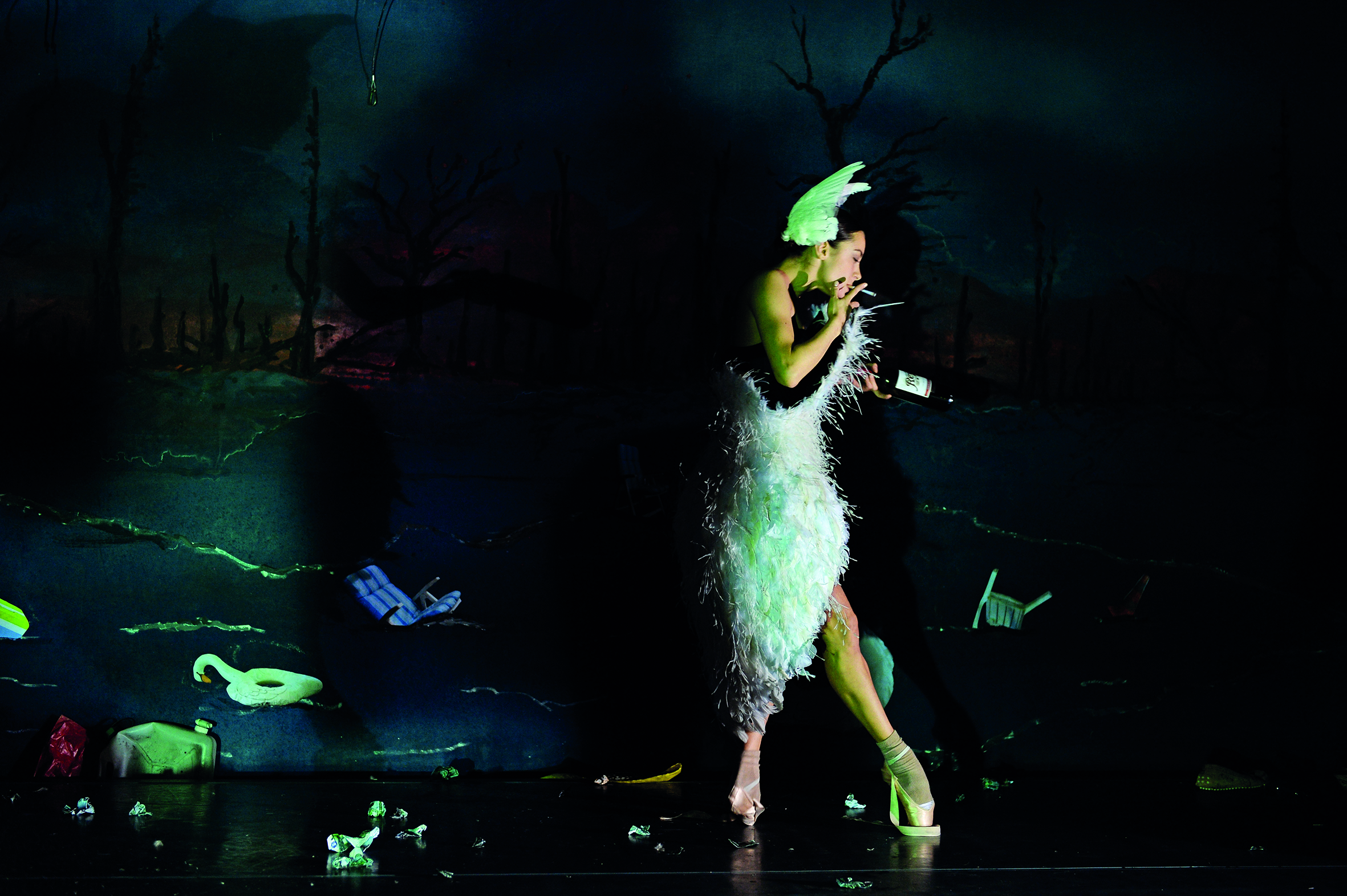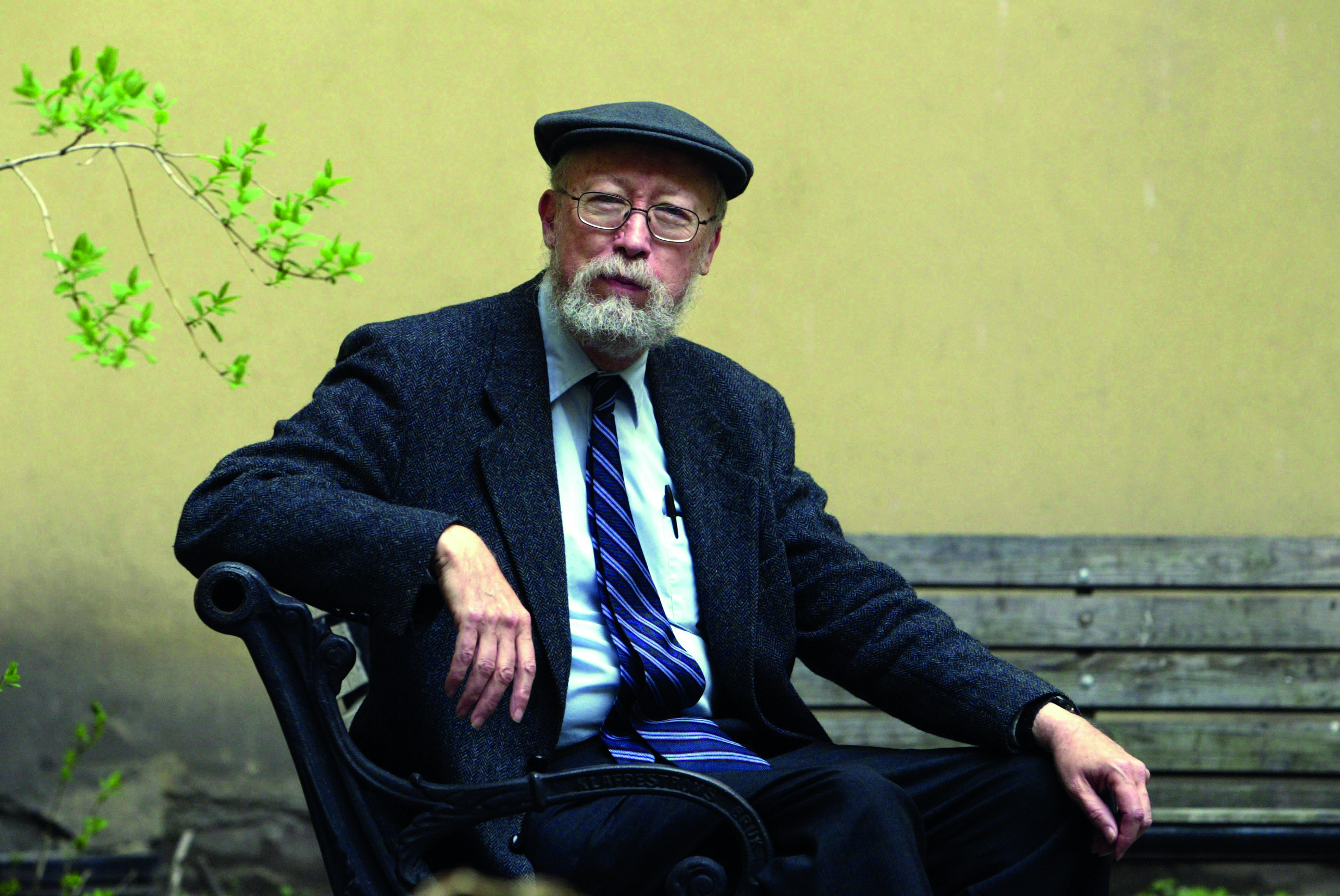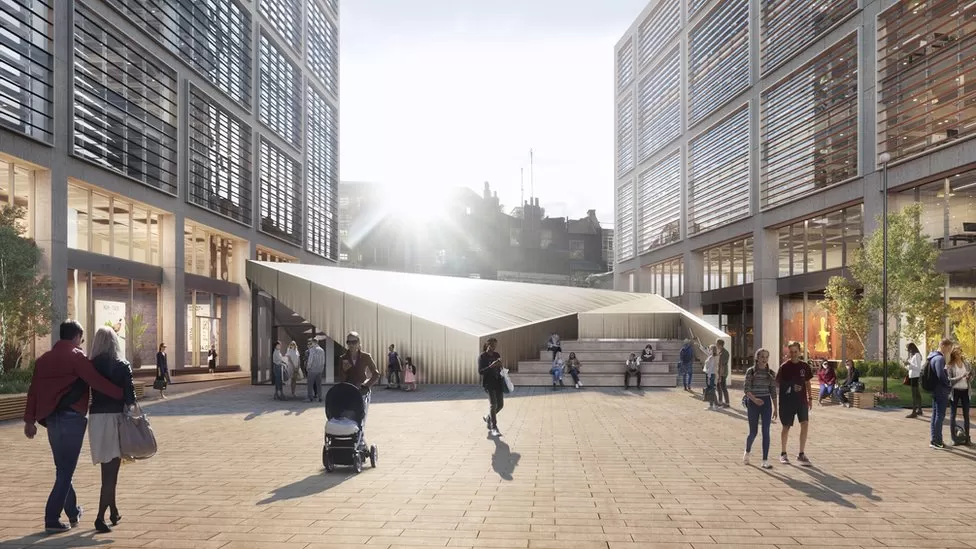Theater is a live form of art realized by a group of people – performers and the audience – gathering in a certain place, at a certain time. The three components involved in this definition were interrupted by the pandemic. Because of social distancing rules and the lockdown, it was almost impossible to sustain a theatrical practice. This led practitioners to seek ways of coming together, to put emphasis on being in solidarity. In the case of Turkish theater, the influences of the pandemic can be seen in digital theater experiments, creating forms of solidarity through and within the field, and the legal struggles of theatrical producers and theater workers who were left in a precarious financial situation.
Theater in Turkey, as is the case everywhere else, began to change form during the pandemic. The world’s leading theatrical communities have shared their performance archives online. Festivals went online. A large number of theater companies explored the possibilities of performing in a virtual environment. Despite the initial negative reactions against digital theater, and discussions questioning its agency, the possibilities of experiencing a place to be felt and experienced, the “here and now,” in the digital realm, were explored by many. The pandemic prompted actors to experience a series of new forms of storytelling to meet their audience. However, with the burden of economic problems heaped on top, the anxiety of making art turned into a struggle for survival. Life was completely suspended, but taxes, rents, and bills were not. Today, theater companies and venues are on the brink of collapse. Due to the pandemic, more than 2,000 theater workers were left unemployed. Although the Ministry of Culture said it would provide support to private theaters that are deprived of government subsidies, theater producers say the support is project-oriented, and will not solve the root causes of their problems in the long run. In addition, many groups which are on the blacklist due to their tax debts, cannot benefit from the government subsidy.
“The pandemic prompted actors to experience a series of new forms of storytelling to meet their audience. However, with the burden of economic problems heaped on top, the anxiety of making art turned into a struggle for survival.”
There is another side of the coin. The economic crisis opened the way for a network of solidarity among theater companies. In May, a solidarity campaign called “100 Poems of Solidarity/Poetry, the Face of Solidarity” was initiated by theater artists to financially support theater workers. Like wise various theater workers and groups from different regions of Turkey who perhaps have never come together before, united under the initiative, “Let Our Theater Live” (Tiyatromuz Yaşasın). With the petition they initiated, more than 30,000 signatures were collected in the first four days. This action encouraged others involved in the field, as well as audiences, to establish new organizations in their regions and demand support from the state or their local authorities. Theater workers begun to develop a “Theater Law” that would recognize professional legal rights. “The Theater Cooperative,” which set out with similar intentions, continues to strive for the rights of theater workers affected by the pandemic.

“Despite All Odds,” the 24th Istanbul Theater Festival
A festival organized by the Istanbul Foundation for Culture and Arts (IKSV) began on November 14. The 24th edition of the annual festival brings several plays and performances to audiences worldwide.
The venues included DasDas, Fişekhane, the Moda Stage, the Zorlu PSM, the Harbiye Muhsin Ertuğrul Stage, Babylon, Yapı Kredi Bomontiada, the Caddebostan Cultural Center, and Surp Vortvots Vorodman Church.
The 24th Istanbul Theater Festival’s online program extends until the 28th of December. A total of 29 theater ensembles and dance troupes from Turkey and abroad continue to inspire audiences. The festival program is giving wide coverage to domestic productions this year, in an effort to alleviate the severe impact of the pandemic on the Turkish theater scene. Many of the online performances were produced especially for the digital platform. As it does every year, the festival also hosted free side events such as panels, workshops, interviews and reading theaters as a part of its Learning and Development Program. The festival’s Honorary Awards were presented to dancer and choreographer Geyvan McMillen, director Işıl Kasapoğlu and Belgian director Ivo van Hove.
“This process will lead to significant changes in the way we make and see theater. Although theater workers are faced with unemployment, the loss of income and business closures, this process may be an opportunity to invent new forms and languages unique to this time.”
First held in 1989, the Istanbul Theater Festival is international event that brings the audience together with theater companies and dance groups from Turkey and abroad. Organized biennially after 2002, Istanbul Theater Festival returned to an annual cycle in 2017. Every year, the festival hosts carefully select companies and artists to open new horizons for both the audience and the art world by bringing national and international, classical and contemporary renditions to the stage through its unique lens.
So what observations do theater workers have regarding this process? What kind of a theater world awaits us in the new season, in which almost all festivals and performances will be held online? To what extent and how is this process questioned by the actors in the field? What are the suggestions offered by the theater practitioners for this crisis? Obviously, this process will lead to significant changes in the way we make and see theater. Although theater workers are faced with unemployment, the loss of income and business closures, this process may be an opportunity to invent new forms and languages unique to this time. With luck, they will help us grow, transform, and process these tough times. Below are the opinions of some of these theater professionals.

Theater in 2020 is An Oxymoron
Handan Salta Theater Critic
At first sight, theater in 2020 sounds very much like an oxymoron. After a long lockdown, the theater-related habits of both audiences and workers have changed. From the audience’s perspective, this change could mean a long pause for real-time theater. However, for theater workers there must be a way to survive.
Being the only country in the world to ask for donations from its citizens rather than supporting its institutions, freelancers and artists, Turkey is not the brightest place for art to reside. Being left out, people found ways to make themselves visible, and started campaigns on Twitter. Their belated demands were expressed everywhere: “Let our theater live on, theaters should not pay taxes, there should be legislation regarding theaters”…
Under these circumstances, the theater met with its audience online. Flexible, open minded, practical theater people designed, figured out, performed and broadcasted their digital performances. It seems that this will continue. Even the International Istanbul Theater Festival has put around seven performances in their program.
“Flexible, open minded, practical theater people designed, figured out, performed and broadcasted their digital performances. It seems that this will continue.”
People from the theater world are also searching for ways to act in solidarity. There is a theater cooperative and an initiative, mostly for the theater groups in Istanbul. In Istanbul, the new mayor paved the way for another opportunity for solidarity with private theater companies by acquiring their plays. They will be performed in the City Theater’s stages, scattered all around Istanbul.
Theater criticism is closely watching all of these developments. Both online and real-time shows are being reviewed, interviews are being made and there is an increase the online theater programs on YouTube. As for the subject matter of performances, one can observe the fruits of long-lasting inquiries; gender roles, polarization in society, and deep historic wounds are being carried to the stage.

Cultivating Forms of Resistance
Onur Karaoğlu Performer, playwright, and director
Obviously, making theater in Turkey has become more difficult in 2020, but it has always been a tough job. At the moment, all theater artists, except those affiliated with subsidized institutions, feel an immense insecurity for the futures of their careers and their lives in the theater. Many theater people work in other jobs, and their years-long efforts to build an audience will be lost if we cannot go back to the former system of this practice. When there is no institutionalized support for the theater industry, the only thing we can do is find and cultivate different forms of resistance. The Theater Cooperative, Actors’ Union and several local networks are trying to suggest and organize plans and public actions. However, we know that these attempts will not lead to improvements in the short term.
“When there is no institutionalized support for the theater industry, the only thing we can do is find and cultivate different forms of resistance.”
While we are in this situation, maybe through a naive optimism we can try to rethink our working methodologies. To do this , in the days when face-to-face interactions are constantly being re-defined, existing production facilitators such as festivals and sponsors should support artists and organizations looking for new practices for human interaction in different areas, such as digital. Theater people are trained to research different forms of being human through their imagination. Under these new conditions, questions like, “What sort of humans are we going to be? How will our relationships with the world and one another be reformatted?” can be explored and experimented through theatrical practices. While 2020 is constantly teaching us new lessons, theater makers can guide us through their practices by exploring their experiences of being human in unexpected conditions. This can only be possible by going in the direction of researching and supporting the invention of a new concept of dramaturgy in theater.







